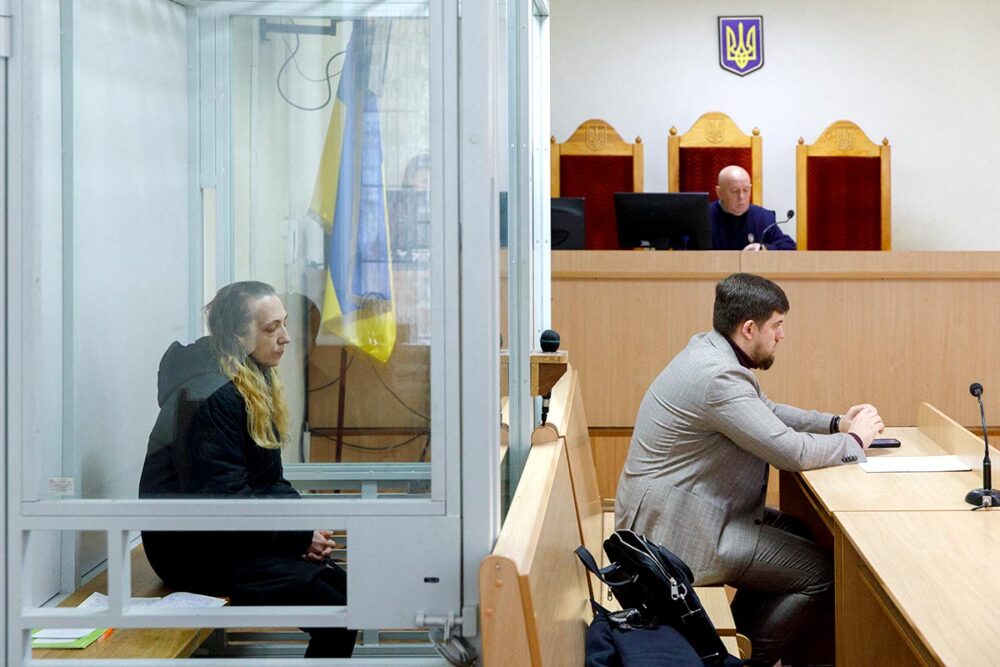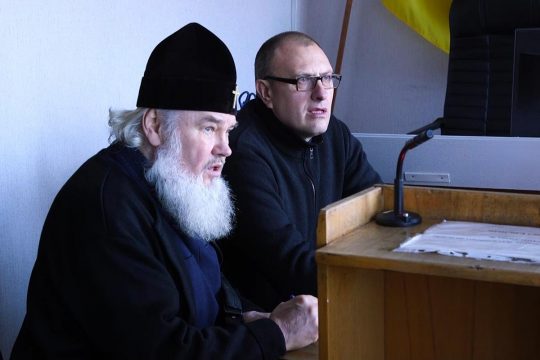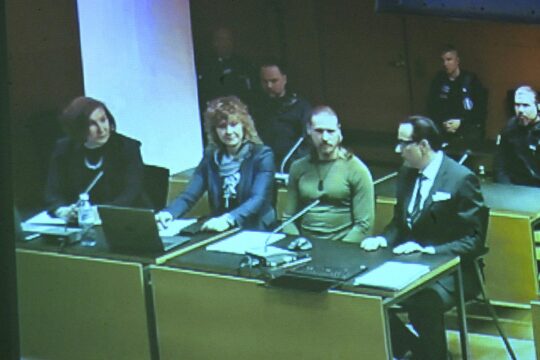Before 2022, cases of national security offences in Ukraine had been stagnating in the courts for years. For example, the trial of the former mayor of Sloviansk, Nelia Shtepa, who was accused of threatening the territorial integrity of Ukraine, has been ongoing for 10 years. She does not admit guilt, and there is still no verdict. Due to judges' recusal, many similar cases in the courts of Donetsk and Luhansk oblasts have been pending. The judges would refuse to consider the cases because they had relatives or property in the territories related to the crimes and controlled by separatists.
But since the beginning of the full-scale invasion of Ukraine by Russia, the number of cases for crimes against national security has significantly increased. According to the Office of the Prosecutor General, as of June 2024, more than 8,000 proceedings on collaboration have been registered. And according to the information provided by the Department of Justice, in 2023, proceedings against 2,811 people accused of collaboration were pending in the courts of first instance. At the end of the reporting period, 1,819 proceedings were still pending. Last year, 790 cases led to verdicts.
This inflow of cases was caused by several factors. As many as seven parts with different types of violations were inserted into the new law on collaboration passed in March 2022 immediately after the Russian aggression. This expanded the range of potential accused. The possibility of trials in absentia also contributed to an increase in court proceedings. The public demand to bring to justice those who helped the enemy in the context of a bloody war is another factor.
However, in the third year of active prosecution of collaboration cases, warnings are increasingly being voiced in the expert and human rights community regarding the fact that the current legislation and approaches of the law enforcement and judicial systems do not meet this demand in substance. The approach, they say, should protect from prosecution those who, while holding ordinary jobs during the Russian occupation, helped their fellow citizens survive. And conversely, it should bring to justice people who were indeed cheering for Russia.
We have analysed the court practice over the past six months in cases of collaboration and highlighted the issues that have emerged in such cases over the past two years or so.
Broad discretion
Article 111-1 on collaboration, introduced into the Criminal Code of Ukraine after the beginning of Russia’s invasion, covers liability for crimes like public support for the aggressor's actions, employment in the occupation authorities, implementation of the aggressor country's educational standards in the occupied territories, participation in illegal referendums, supply of material resources, and service in the occupation law enforcement agencies.
More specifically, the first two parts of this article refer to misdemeanours and are sanctioned by so-called “lustration” bans on working in certain administrative positions or engaging in certain activities. In the remaining cases, the punishment can reach up to 15 years in prison, and in the case of complicity or severe consequences, life imprisonment may be imposed.
However, despite this detailed specification of the types of criminal offences, human rights defenders believe that this article of the Criminal Code contains vague definitions that lead to misinterpretations.
“There is a problem with an unclear range of liabilities and blurred legislation. For example, if a maths teacher simply teaches a lesson, this is not an implementation [of the aggressor country's educational standards]. The term “implementation” has a broad discretion. There is a chance that those who really need to be punished will escape responsibility, and those who don't deserve to be tried may be prosecuted,” Serhiy Horbachov, the Ukrainian Education Ombudsman, said during the June 2024 International Film Festival Docudays UA’s discussion on “Educators, Doctors, Utility Workers in the Occupied Territories: Who Does Ukraine Consider Collaborators and Is It Fair?”
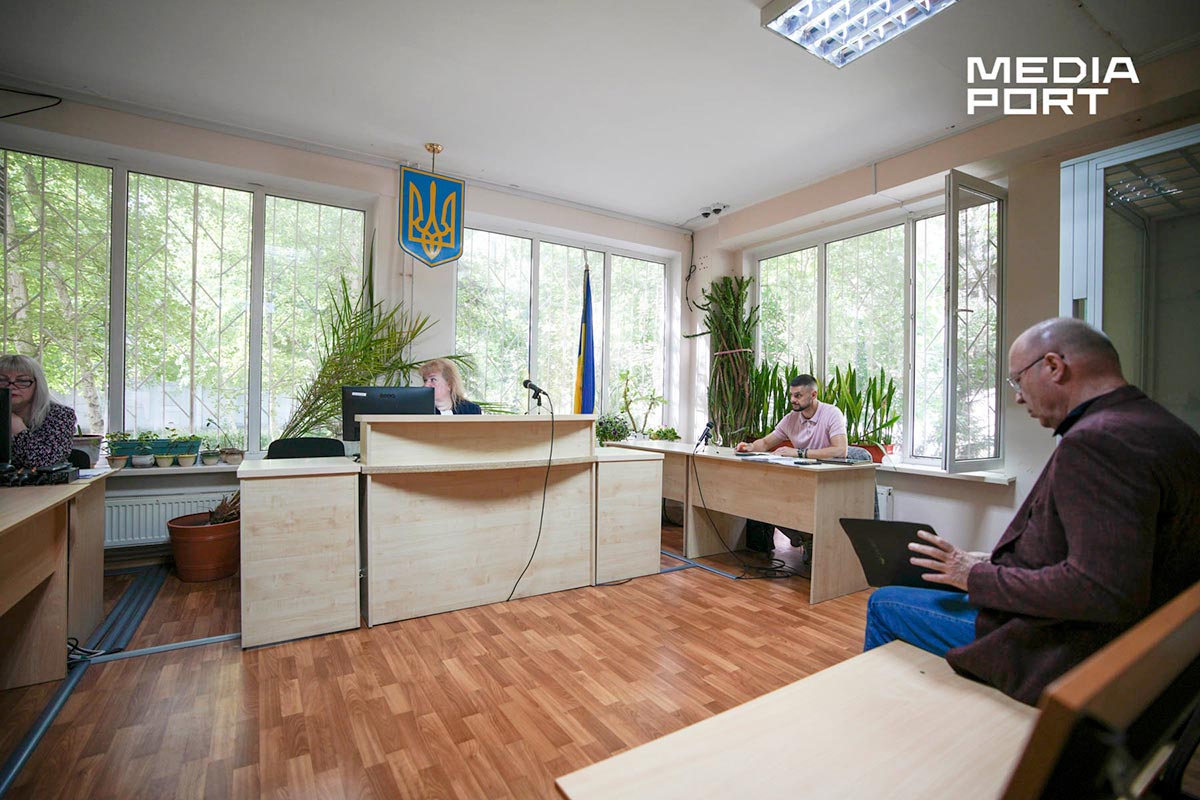
The case of a Kharkiv physics teacher
The concerns raised by the Ombudsman are echoed in case No. 636/2017/23, which was ruled on April 22, 2024, by the Kharkiv Court of Appeal. It concerns the sentence imposed on a physics teacher charged under Part 3 of Article 111-1 for implementing Russian educational standards. According to the indictment, in August 2022, the occupiers appointed the physics teacher as the new principal of the school, as the acting principal refused to work. However, witnesses who worked at the school confirmed that after the occupation of the village, the school finished the academic year according to the Ukrainian academic program. They testified that the defendant never urged them to work according to Russian standards and that classes were taught in Ukrainian. Despite the fact that the occupiers delivered Russian textbooks, the Ukrainian ones were preserved. The celebrations on the occasion of the First Bell Day were held without any symbols (also known as the 1st of September celebrations, it is the first day of school and an important moment in Ukraine where teachers, students and parents gather and share talks, flowers, songs. The last day of school is also called the Last Bell Day). According to witnesses, the defendant instructed them to repeat the academic program that was taught last year. The school worked under the occupiers for a total of one week, as the Kharkiv region was then liberated by the Ukrainian Armed Forces.
The court of first instance found the man guilty of implementing Russian educational standards, sentenced him to a year in prison and banned him from working in education and government for 12 years. Despite the fact that the defendant pleaded guilty, the defence lawyer asked the court of appeal to overturn the verdict. Instead, the prosecution requested a more severe sentence. As a result, the appeals court increased the defendant's sentence by 6 months.
Two different cases, same sentence
A teacher of Myrnenska school in Melitopol district, Zaporizhzhia oblast, faced identical charges. As stated in the verdict of the Zaporizhzhia Court of Appeal in case No. 333/3218/23, issued on May 16, 2024, the accused took the position of principal after the occupation of the village. As established during the trial, while holding her “position”, the woman campaigned for her colleagues to cooperate with the Russians and implemented Russian schoolbooks. Under her guidance, the school held propaganda events for Russian holidays. Witnesses interrogated during the trial said that the “principal” threatened families with the deprivation of parental rights if their children were not sent to school. In addition, she encouraged schoolchildren to participate in Russian competitions and contests.
However, the defence lawyer argued that it had not been proven that his client had taken the position voluntarily. He said there was a likelihood that she had been subjected to pressure. He also emphasised that the interrogated witnesses had not actually observed what was said in court. They confirmed that the information provided during their interrogation was taken from the Internet and from the words of other people.
The trial in this case was held in absentia, as the accused is currently in occupied territory. The court of first instance sentenced her to the same penalty as the teacher from the Kharkiv oblast – a year in prison with a 10-year ban on holding certain positions. But it was the court of appeal that increased the sentence to three years behind bars.
These two teachers were charged with similar offences. However, despite the obvious difference in their actions, the trial chambers imposed identical sentences. It appears that sentences can be issued merely for committing actions formally prescribed in the Criminal Code. And that individual nuances and the consequences the actions led to are not always examined or taken into account.
“You will crawl to Putin on your knees”
The first part of the article on collaboration stipulates liability for public calls to support the actions of the Russian Federation. In this category of offences, people are mainly prosecuted for posting pro-Russian narratives on social media. Sometimes for statements made in public places.
For example, in case No. 766/7762/24, a man was accused of publicly denying the Russian armed aggression and advocating not to recognise Ukraine's state sovereignty. According to the case file, in January-April 2023, the man posted a number of pro-Russian comments on one of the Telegram channels. For instance, he wrote that he “supports and hopes that the Special Military Operation will get back what is owed”, “Kherson is Russia, we are waiting for you” and so on. According to the expert who reviewed these statements, they have signs of public justification of Russia's actions and denial of Ukraine's state sovereignty. The defendant pleaded guilty and repented. On May 24, 2024, the Kherson City Court found the man guilty and banned him from working in public administrations for 10 years.
A similar qualification is indicated in case No. 127/25147/23 against a resident of Vinnytsia. According to the case file, in August 2022, he was drinking at a railway station snack bar. At that time, he publicly stated: “You will never win, and if Putin increases your pensions, you will crawl to him on your knees.” Based on this statement, the authorities opened a case, carried out several procedural actions, and assigned expert evaluations. The case is currently being considered in court. The expert concluded that there was no direct call for support for Russia in the man's words. Nevertheless, the law enforcement system has undertaken considerable work to ensure that the case goes to court.
Given the statistics of the Prosecutor General's Office, which already includes more than 8,000 proceedings for collaboration, the Ukrainian law enforcement and judicial system risk being in a situation where, due to lack of time, they will not be able to investigate such caseload. And the above examples indicate that the public demand for fair punishment of Russia's supporters may not be fulfilled.
Humanitarian collaboration
“The purpose of the International Humanitarian Law is to protect civilians during the occupation. At such times, the occupation authorities are responsible for the civilian population and must provide for all their basic needs. Since the occupation authorities have this responsibility, they can forcibly use people to perform such functions. It sounds strange, but the occupation authorities can oblige people to work in schools, hospitals or other institutions. After all, for normal life to continue, someone must perform these functions. In addition, it would be illegal to involve citizens of the invading country,” explained Noel Calhoun, Deputy Head of the UN Human Rights Monitoring Mission in Ukraine, during a discussion at Docudays UA about the problems of prosecuting collaborators.
In addition, she says, the occupation authorities must comply with the existing laws in the occupied territory. This means not changing legislation, educational programs, not forcing people to change their passports and take oaths of allegiance to the invading country.
Yet, in reality, Russia has forced people to work according to its own laws. But since it is a rather distant perspective to see the Russian Federation being held accountable for violating International Humanitarian Law, it is Ukrainian citizens who are being tried here and now. Within this context, human rights defenders emphasise what they call “humanitarian collaboration” when referring to functions in education, medicine, and the public utilities sector, and advocate for a more thorough examination of the circumstances when it comes to cases where people are being prosecuted because they were paying pensions and salaries, repairing electricity or feeding prisoners.
Signs of evolution
The case of the conviction of an electrician from Lyman, who was restoring electricity in the occupied city and was sentenced to three years in prison, was widely covered in the media. Although witnesses confirmed that the man was in fact helping to reconnect the electricity supply in the city, which had been cut off due to shelling, the trial chamber found him guilty of collaboration.
Ihor Zhosan worked as a kitchen manager in the Kherson correctional facility. The man had held the position since 1999 and remained employed during the occupation. He was in charge of organising the prisoners' meals. Despite explaining that he did not have any employment contract with the occupiers and that everything happened automatically without the consent of the employees, he was taken into custody and is currently being tried for collaboration.
However, compared to the previous year, it is noticeable that in some cases, courts are reducing the sentences for humanitarian collaboration. For example, last year, the Bobrynets District Court of Kirovohrad oblast sentenced a resident of Snihurivka, Mykolaiv oblast, to 6 years in prison. During the occupation, the woman worked as an accountant in the administration and paid salaries and social benefits to local residents. But this year, the Snihurivka District Court of Mykolaiv oblast considered a similar case involving charges against a local resident who worked as an accountant at a utility company during the occupation. The court sentenced him to a 3-year probationary period. This indicates that over time, the judicial system may be changing its approach to sentencing.
What is the legislator going to do?
At the end of last year, the UN Human Rights Monitoring Mission in Ukraine recommended that the Ukrainian authorities revise the law on collaboration in accordance with the provisions of international humanitarian law and the realities of life under occupation. A draft law is currently under development to amend legislation on punishment for crimes against national security.
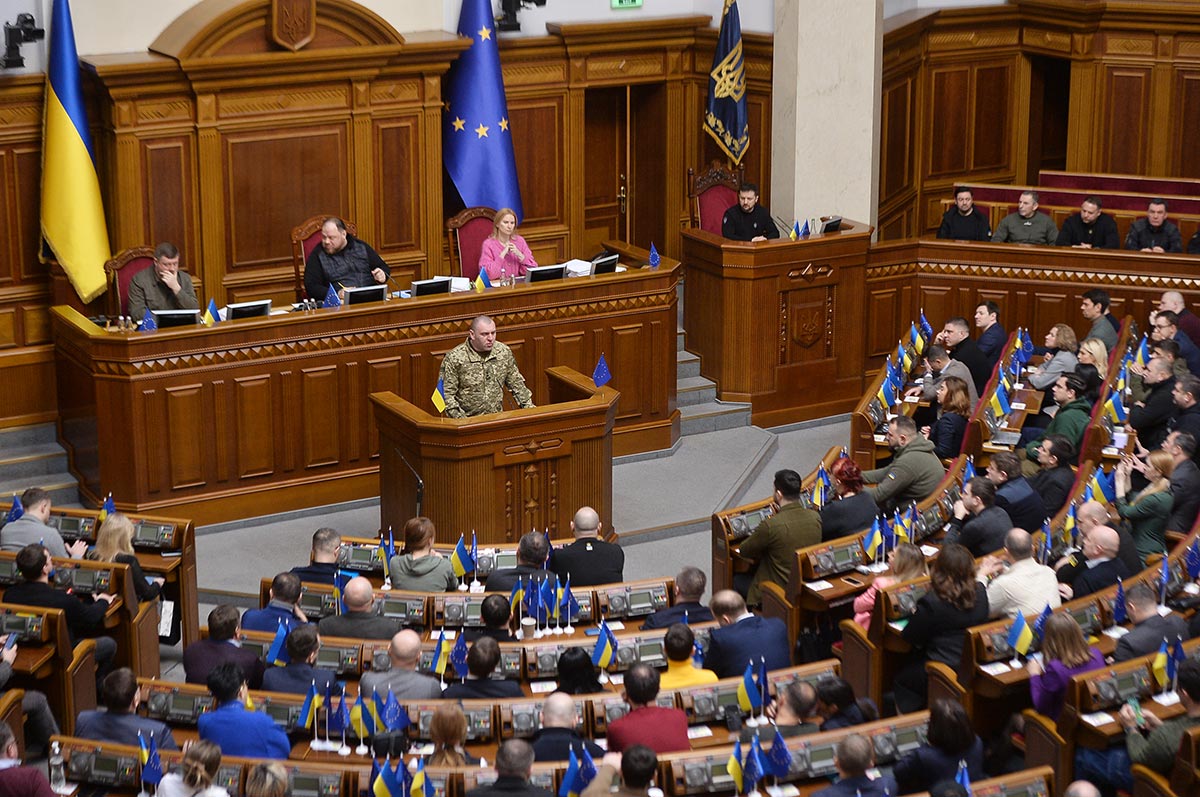
However, the current draft law does not include the exclusion of the part on public support for the actions of the Russian Federation from the article on collaboration. For example, in part one of the article on denial of armed aggression, for which there is punishment in the form of a “lustration” ban on holding administrative positions for a certain period, it is proposed to include a fine and imprisonment for up to three years.
It is also proposed to amend part two of the article and to introduce punishment for holding positions that were not exclusively related to administrative and economic functions in the occupation administrations. Previously, it only referred to illegal authorities in the occupied territories. Additionally it is recommended to increase responsibility by imposing up to three years in prison.
The amendments to the law increase accountability for education professionals. Imprisonment for up to four years is possible not only for the implementation of Russian educational standards but also for their actual use. This means that not only principals and officials of educational institutions but also teachers are likely to face prosecution. In which case, the country's state policy on collaboration crimes may only intensify.
This report is part of our coverage of war crimes justice produced in partnership with Ukrainian journalists. A first version of this article was published on the « Gre4ka » website.


